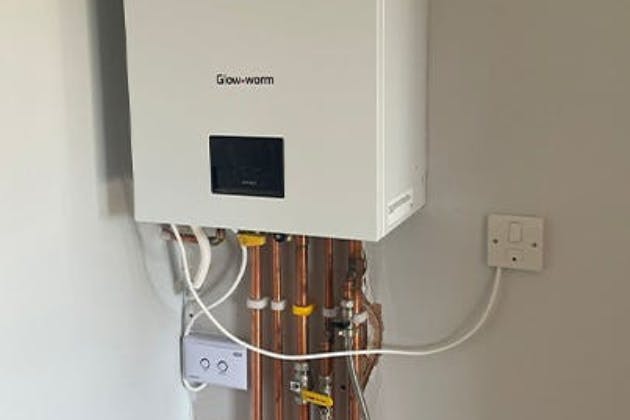When it comes time to replace your boiler, one of the most common questions homeowners ask is how long the installation will take. The answer depends on several factors, from the type of boiler being installed to whether additional work is needed on the existing system. Knowing what to expect can help you plan ahead and reduce the disruption to your daily routine.

Factors That Affect Boiler Installation Time
A new boiler installation is not always a simple swap, and the time it takes will vary depending on the scope of the work involved. On average, most installations can be completed within one to three days, but some situations may require longer.
Straightforward Replacement
If you are replacing your old boiler with a modern one of the same type and in the same location, the job is typically completed in a single day. This involves removing the old unit, fitting the new one, and carrying out the necessary safety checks. It is the fastest option and causes the least disruption to your home.
Relocating the Boiler
Moving a boiler to a new position in your home is more complex and will usually take two to three days. Engineers may need to run new pipework, adjust the flue, and make good any changes to walls or flooring where the old boiler was located. Relocating can be worthwhile if it frees up space in your home or improves the efficiency of your system, but it does extend the installation time.
Changing Boiler Types
Switching from one type of system to another, such as converting a regular boiler with a hot water tank to a combi boiler, takes longer. These jobs often involve removing tanks, updating pipework, and making electrical adjustments. Depending on the scale of the work, this can take anywhere from two to four days. Although it requires more time, the long-term benefits of better energy efficiency, faster hot water delivery, and additional space in your home often make the investment worthwhile.
Upgrades and Additional Work
Sometimes, engineers may recommend additional upgrades during the installation. For example, fitting a new thermostat, upgrading radiators, or flushing the system. These tasks add extra time but improve performance and help extend the life of your new boiler. Powerflushing, in particular, can take several hours but ensures that your system is free from sludge and debris, giving your new boiler the best possible start.
Testing and Handover
Regardless of the type of installation, once the boiler is fitted, the engineer will thoroughly test it to ensure it is working safely and efficiently. They will also provide instructions on how to use the new controls and supply a record of the installation. This step ensures that you feel confident using your new system and understand how to get the best out of it.
Planning for Minimal Disruption
While a new boiler installation can seem disruptive, good preparation makes the process much smoother. Clearing the area around your existing boiler, making space for tools and equipment, and being available to discuss any preferences with the engineer can help keep the installation on schedule. Many homeowners are surprised by how efficiently the process is carried out when everything is ready in advance.
Looking for a Boiler Installation in Gravesend, Medway, and Dartford?
BCU Plumbing provides professional boiler installations tailored to your home. Whether you need a straightforward replacement or a full system upgrade, our experienced team ensures the job is done safely and efficiently. Call us on 0800 246 1041 or 07712 172 171, or fill out our contact form to arrange your installation today.

